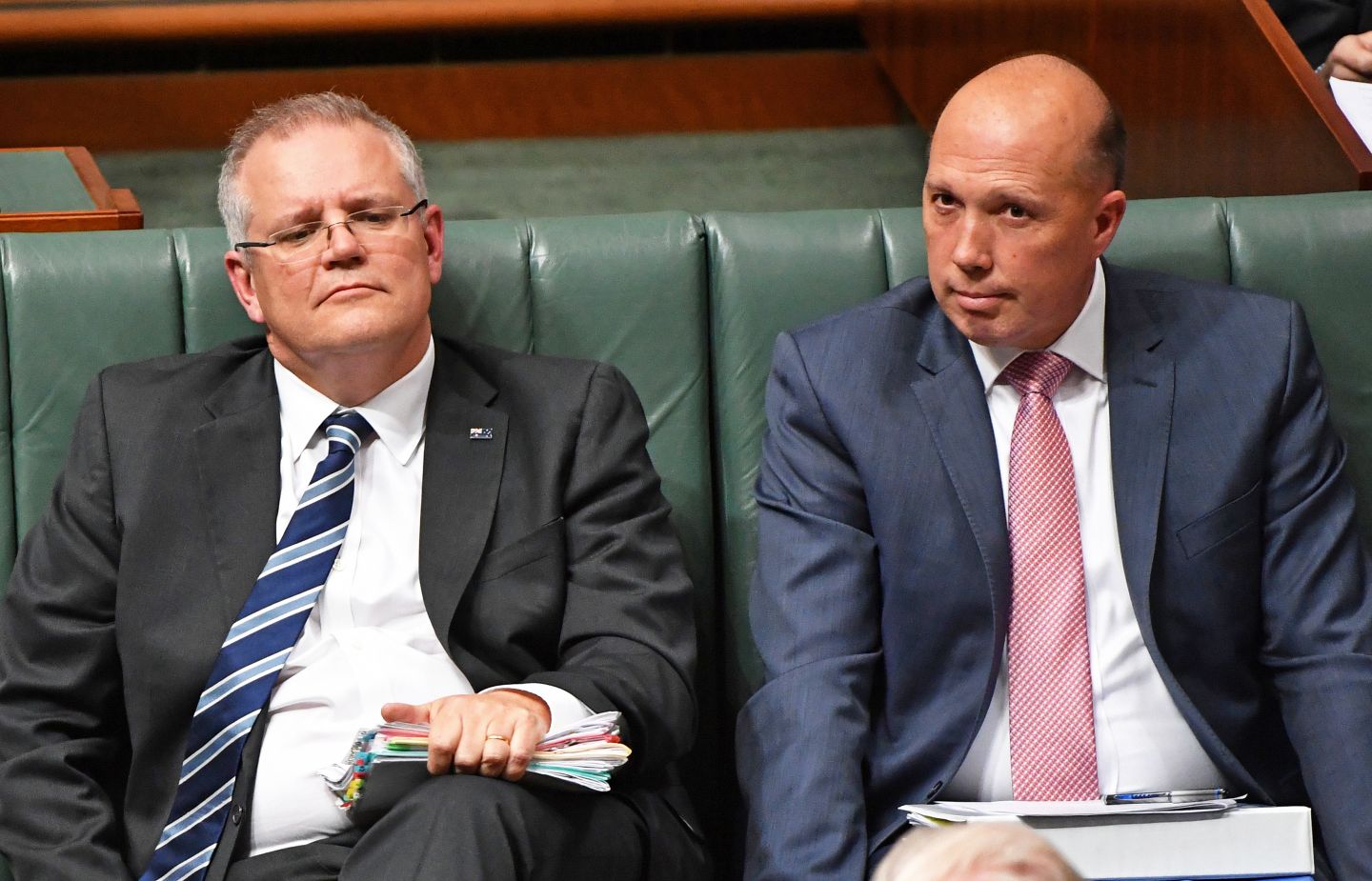Updated 23 August 2018
Malcolm Turnbull is finished as prime minister and will not lead his party to the next election. As befits the social media age, the traditional two-stage, months-long challenge process has been whittled to weeks, if not days. At time of writing his successor will be either challenger Peter Dutton or compromise candidate Scott Morrison.
What happens then? Most drag-’em-down leadership changes are followed by an opinion poll bounce for the new leader, if only because the destabilisation process had dragged down support for the previous incumbent. If the change happens this week, we’ll only have a possibly rogue 55–45 Ipsos poll to compare with. The polls before that generally had the government competitive, on 48 or 49 per cent after preferences.
There is usually a honeymoon, too, as the new occupant dons the robes and observers marvel at how surprisingly well they fit. Gosh, what gravitas, or at least presence, or maybe a kind of freshness. He/she speaks clearly, or at least seems to believe what they say — anyway, this leader is nothing like that waffling predecessor in their desperate final days. “Good day for redheads!” you might say.
Journalists gush, political observers project those early, glowing press conferences and interviews onto the electoral contest. It’s “game on!” or even “I think we might be looking at a landslide!”
The poll bounce is also routinely interpreted as evidence of the wisdom of the change, but it ain’t necessarily so. Alexander Downer received a huge bounce after he became Liberal leader in 1994. Labor’s Mark Latham got a big, delayed one in 2003–04. Both of those leadership changes are widely agreed to have been blunders. Julia Gillard’s bounce in 2010 was huge in terms of primary votes and modest in two-party-preferred ones. Some (such as me) would consider that move a disaster, others might not.
Bounces happen — sometimes straight away, sometimes after a while — whether the change was smart or not. They are fleeting, and don’t really represent how people would vote “if an election were held today.” More than usual, the polls are measuring something else. They tend to be propped up by sky-high personal ratings, and eventually subside to a new normal.
A bounce might lead to a couple of things. It can encourage the government to go to an election early — hello again, 2010. And as we saw then, that just brings forward the drop in support, as minds start focusing on actually voting.
(Kevin Rudd’s 2006–07 bounce lasted almost a year, with sustained fifteen- to twenty-point leads, only deflating during the actual campaign to arrive at a rather modest 52.7 per cent vote after preferences.)
A bounce might also encourage those on the other side to contemplate their own leadership. After Turnbull topped Abbott in 2015 and took the lead in polls, Bill Shorten suddenly looked decidedly shrivelled, and was no doubt pleased to be protected by the new leadership rules Rudd had bequeathed him.
I suspect that the Labor opposition today is most scared of Dutton as Turnbull’s replacement. Not because it should be, but because that party lives in perpetual fear of that crafty social conservative who captures the hearts of its own white blue-collar “base.” (Don’t tell anyone, but that “base” doesn’t really exist anymore.)
Over those long years facing John Howard from 1996 to 2007, a kind of Stockholm syndrome saw Labor believe in all kinds of hobgoblins — “battlers,” “conviction,” that sort of thing — which led them to throw away the 2004 election by elevating the socially reactionary Latham to the leadership, partly in an attempt to out-Howard Howard.
In 2010 the Labor brains trust overreacted to the threat from Tony Abbott by dumping the carbon pollution reduction scheme and then dumping Kevin Rudd. Had they not done either, Labor would have been comfortably returned at the election and Abbott consigned to the failed opposition leaders’ club.
But Labor strategists, with their clipboards and polling data, arrived to save the day. And they’re always there, lurking, ready to step in.
The biggest danger for the opposition lies not in the Liberals’ new leader, whoever it is, but in Labor’s tendency to overreact, to dance to that leader’s tune. ●





